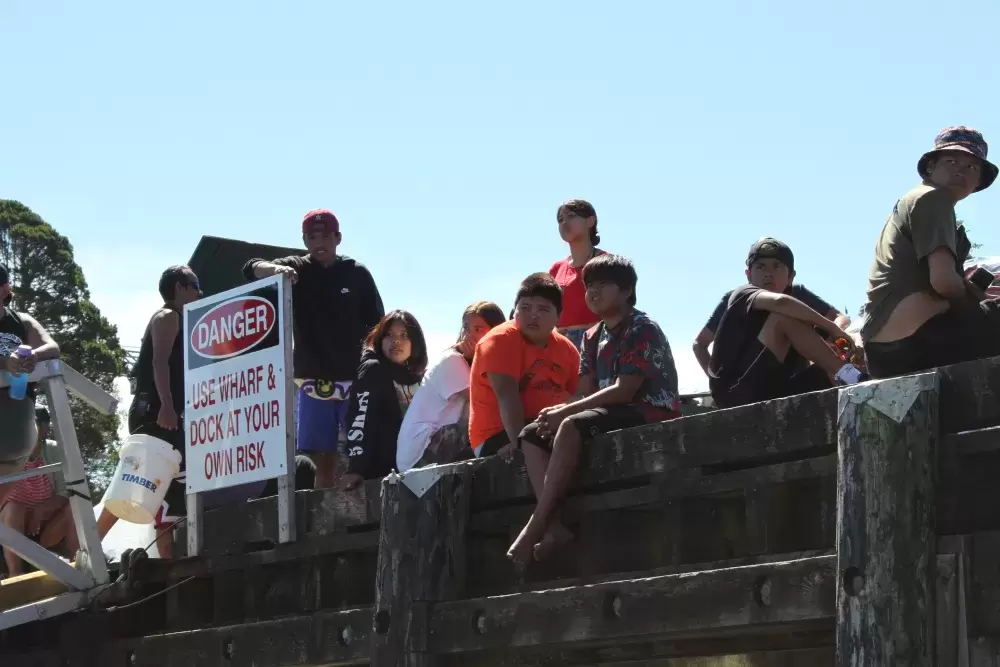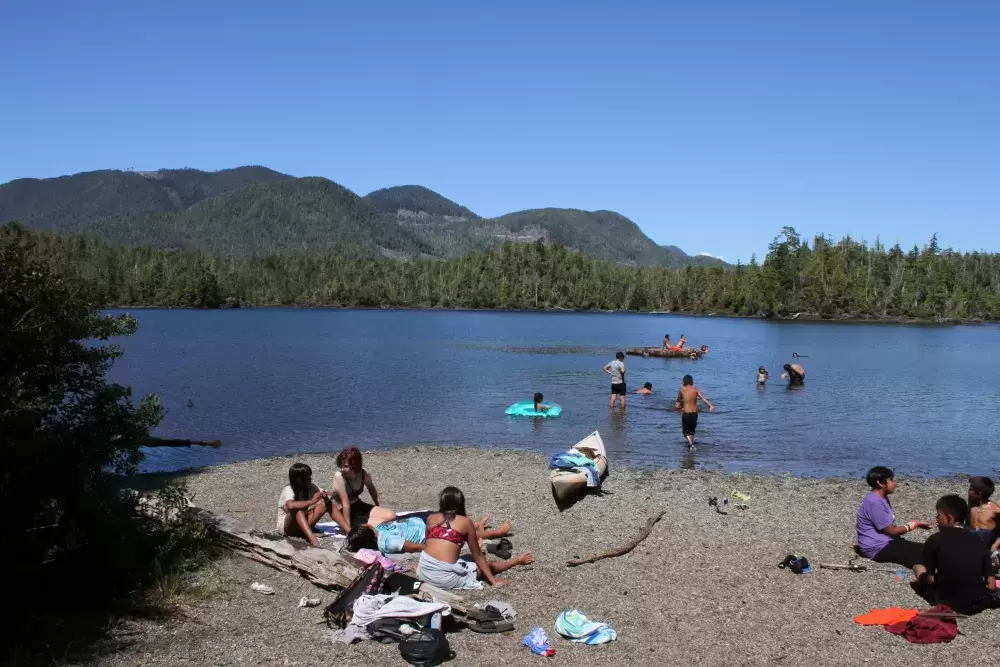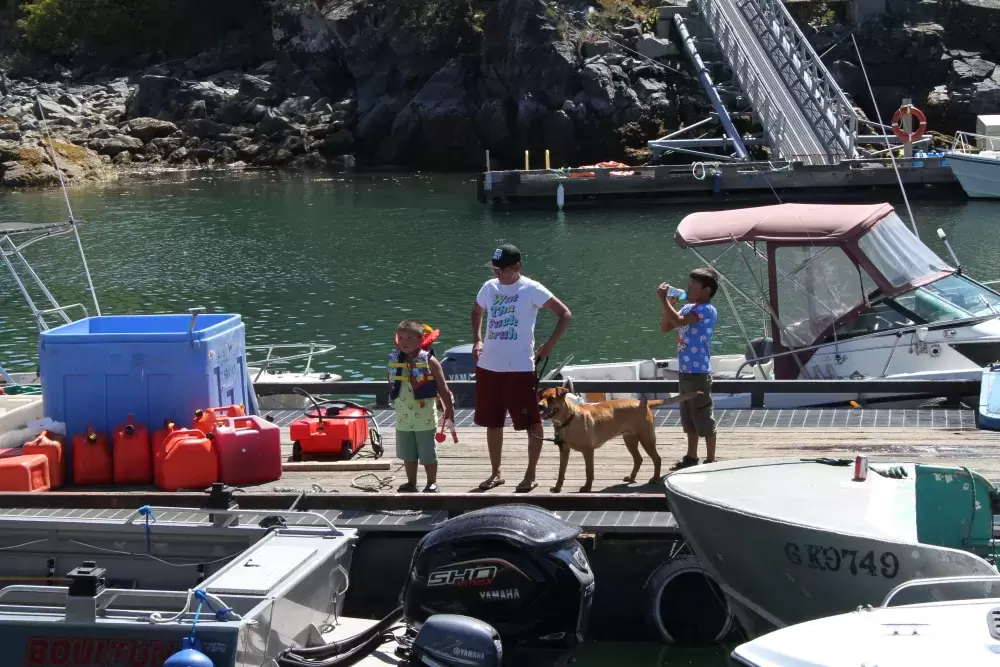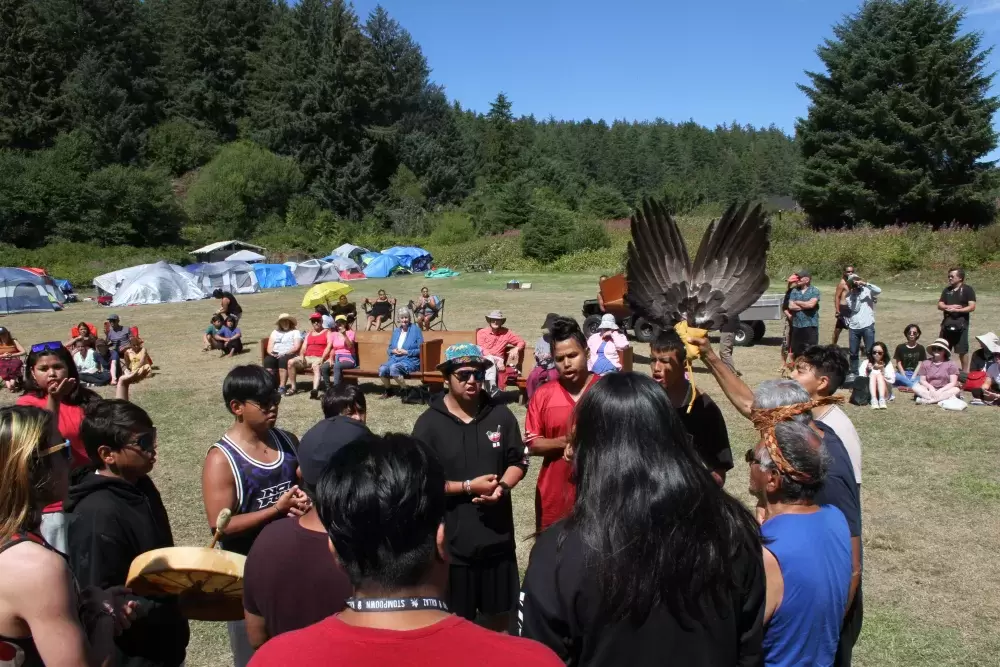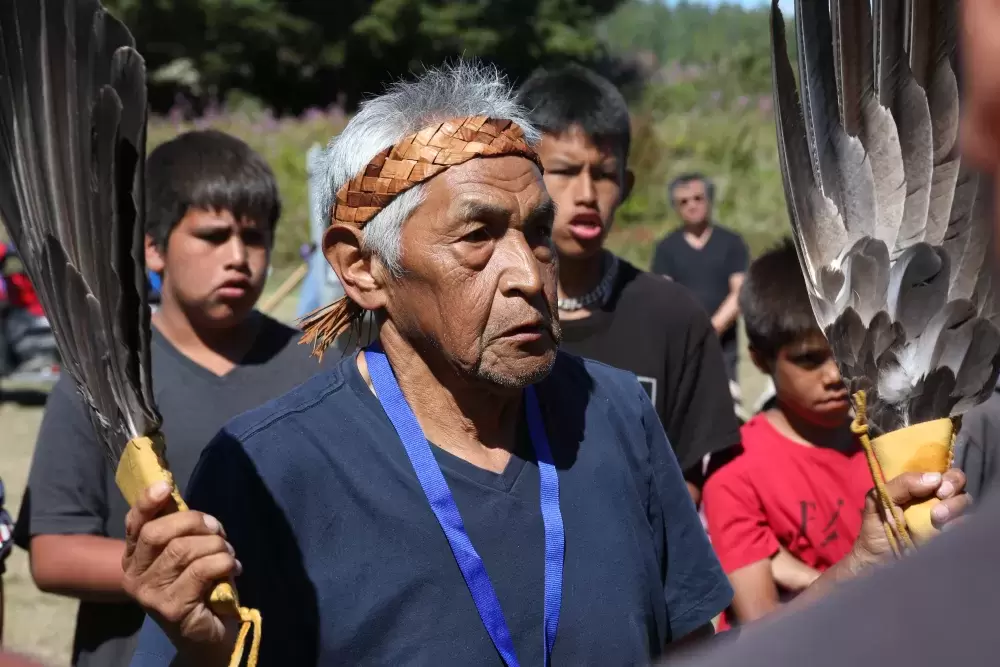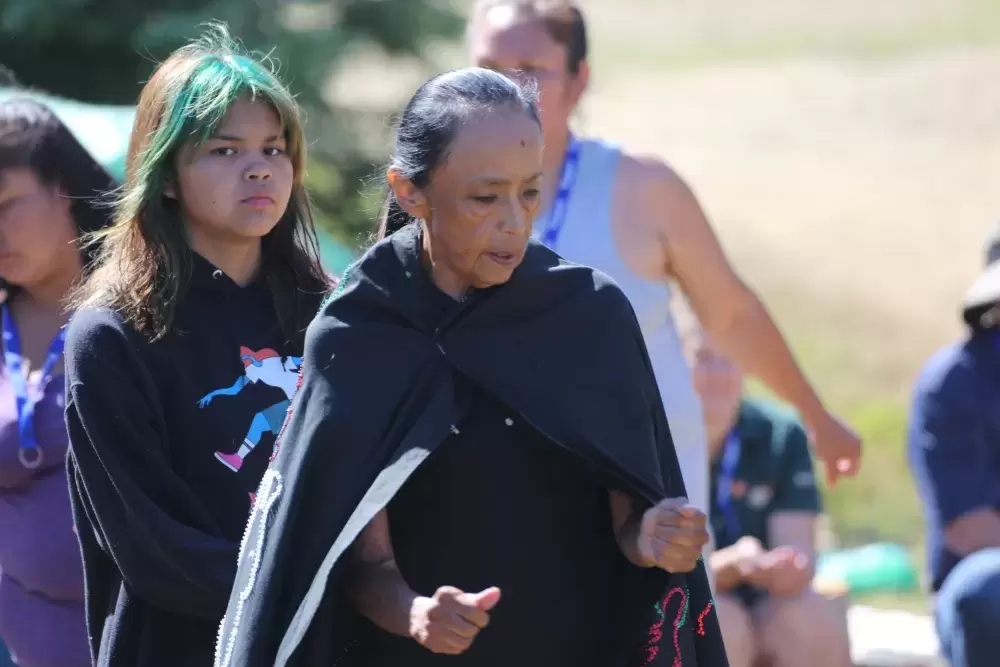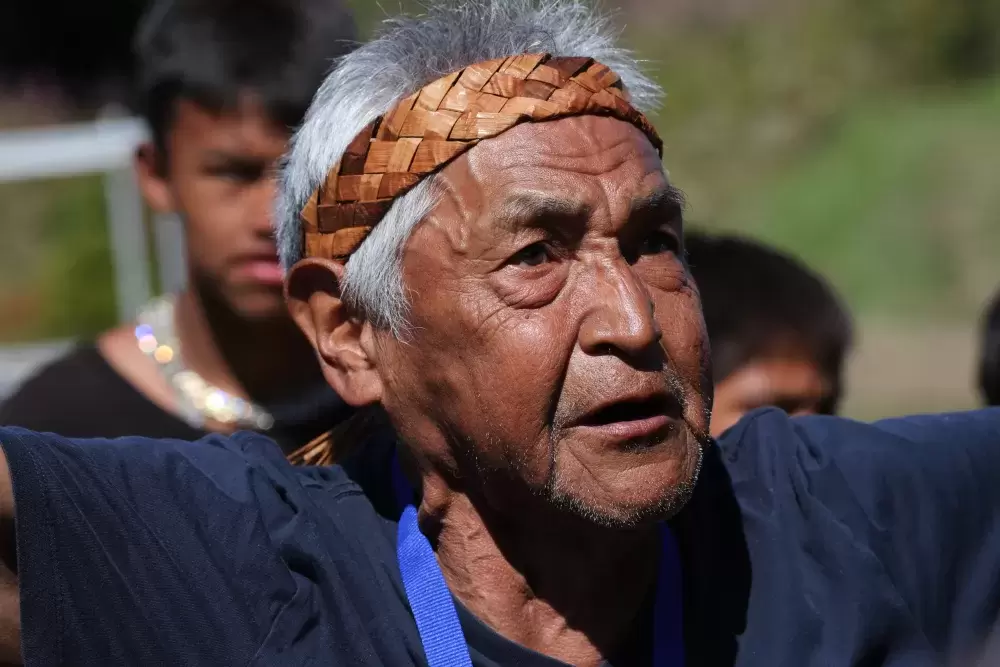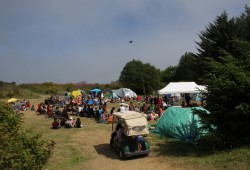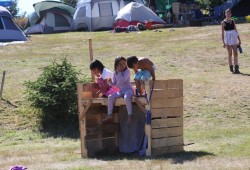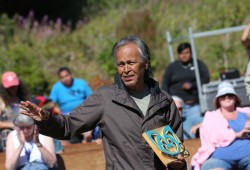This year marks 100 years since the ancestral home of the Mowachaht/Muchalaht people was formerly identified by Canada as a national historic site, but how the location is being recognized has completely changed over the past century.
In 1923 the Historic Sites and Monuments Board of Canada designated Nootka Sound as a national historic site. Along with Fort Langley, the location off Vancouver Island’s west coast was the first in B.C. to earn such a mark of importance.
Six years later a plaque was installed on a small island by Yuquot, an event attended by the Mowachaht Tyee and B.C.’s lieutenant governor. But as the years went by, it became clear that the information in the marker had missed key elements of the area’s history when it came to the First Nations who had lived at the coastal site for thousands of years. Instead, it focused on the British Captain James Cook, who landed at Yuquot in 1778, the first European contact with Indigenous peoples in British Columbia that would lead to the region’s fur trade. The site also housed Spain’s only Canadian settlement for five years, the European power’s most northern garrison in the Pacific in the late 1700s.
“It was discovered by Captain Cook,” summarized historian Richard Inglis of the original plaque. “The designation had nothing to do with Yuquot.”
Cook’s landing at Yuquot, or Friendly Cove, was a momentous development for European exploration of North America, an event that inspired Canada’s historical designation a century ago. But the site was already steeped in a history of its own. For countless generations Yuquot served as the summer village of the Mowachaht people, a place that became a focal point for trade and gathering amongst Indigenous nations by the late 18th century. Archaeological excavations that began in 1966 uncovered evidence of over 4,300 years of continual habitation at the ancient village site.
In the late 1960s the discoveries from these digs led Parks Canada to plan a museum at Yuquot to display the pre-Captain Cook history to a wider audience. Mowachaht/Muchalaht member Margaretta James saw the plans for this attraction, something she describes as “a Disney experience” for the general public without fairly understanding the cultural complexities within Yuquot’s history.
“They wanted to put it in a museum, create that whole experience,” said James, who is president of the Land of Maquinna Cultural Society, noting that the project was never actualized.
Then in 1978, the province came forth with plans to celebrate the bicentennial of Cook’s landing, something that developed without the First Nation’s consultation or approval, said James.
“After that the door was closed between the nation and the province,” she said, recalling when Mowachaht/Muchalaht members wore T-shirts bearing the slogan “Cook the captain”.
“When the Cook bicentennial came in 1978, the leadership in the community shut it down,” said Inglis. “They said, ‘No, you’re not coming ashore to celebrate Captain Cook’.”
“There was also a lot of political things going on in the late ‘70s and into the early ‘80s,” added James. “That’s when a lot of Indigenous nations changed their titles and names back to the original [ones].”
By 1992 the Mowachaht/Muchalaht community had lived away from Yuquot for about two decades, after their main reserve relocated to Gold River in the late ‘60s and early 1970s. The late Tyee Ha’wilth Ambrose Maquinna identified a need for his people to reconnect with their ancestral homeland, which brought about the first Yuquot Summerfest and camp out that year.
At this time work also began on the Yuquot Agenda paper, a declaration of the site’s true historical importance to the First Nation that was submitted to the Historic Sites and Monuments Board of Canada in 1997.
“For us, our history goes back to the beginning of time when our ancestors were created on this landscape,” reads the agenda paper. “The history books are neither accurate nor kind to us. From our perspective, Europeans did not ‘discover’ this part of the world, nor is the European arrival the single most important event in our history.”
Inglis helped to write the document, based on interviews with four hereditary chiefs: Ambrose Maquinna, Jerry Jack, Max Savey and Arnold James.
“They took the position that, you white guys can tell all the history you want, but we want to tell our history,” summarized Inglis. “We want it to be respected an on equal footing with yours.”
The original plaque was changed, and the First Nation began to have discussions with the province about economic development.
“The discussion was what assets to do we have, what do we have that can make money? And Ambrose said, ‘Friendly Cove, Yuquot’,” said James.
Decades later, there is neither a museum nor hotel at Yuquot, where the unspoiled environment serves as the southern end point of the Nootka Island Trail, an internationally recognized 35-kilometre destination for hikers. The Williams family have the only household to remain at the village site since the main reserve was moved 50 years ago.
Meanwhile, a new generation of Mowachaht/Muchalaht members converge at the location each summer for a week or two of camping. Tyee Ha’wilth Mike Maquinna addressed his people during the 31st Yuquot Summerfest on Aug. 5.
“We started a little bit sorrowful this year at our campout due to a couple of losses in our community,” he said. “We want to acknowledge those who have been able to help us through this tough time.”
The chief encouraged those present to bring their family members to future gatherings.
“We want to be family oriented, not just fishermen coming out,” said Maquinna. “Families are important to us.”
This could be a major part of the cultural importance of Yuquot in the future, said Inglis.
“When you get out here and you see a field full of tents, a large proportion of the Mowachaht/Muchalaht community, I think that is one answer,” he said. “People are coming back to their roots, and they are learning who they truly are.”

